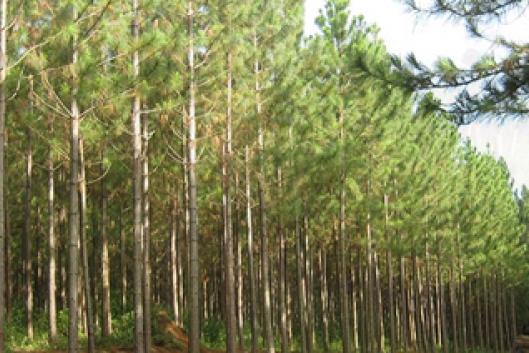Mozambique is a country where tree plantations dates back to colonial times, when Portugal encouraged the planting of eucalyptus and pine trees. By independence there were 20,000 hectares of tree plantations of exotic species in seven provinces.
In 1992, the area covered by tree plantations had doubled, reaching around 40,000 Hectares. The active promotion of large-scale private investment in tree plantations led to the expansion of tree plantations which in 2010 reached 62,000 hectares, according to FAO. Furthermore, a national Reforestation Strategy set the objective of establishing tree plantations on around 1.3 million hectares in the following 20 years.
Niassa, Mozambique’s largest province located in the north, has been the ideal scenario for the promotion of large-scale investments in tree plantations due to its overall adequate soil and climatic conditions. There,companies and investment funds mainly from the Nordic countries of Norway, Sweden and Finland have invested heavily in the tree plantation and wood processing sectors. That is the case of the private Norwegian company Green Resources, with big shareholders such as the investment company Phaunos Timber Fund Limited, and Storebrand, one of Norway’s biggest insurance companies (see WRM Bulletin 191).
The Sweden-based investment fund Global Solidarity Forest Fund (GSFF), an initative of Swedish and Norwegian Churches with investors that include the Dutch Pension Fund ABP (see WRM bulletin 173) has also started operations in 2005 in the region through its subsidiary Chikweti, establishing mainly pine trees plantations though more recently it is planting up to 90 per cent of eucalyptus on new plantations.
This expansion has caused serious problems because it is taking over land from the machambas, small family farms used to grow food (see WRM Bulletin 165). According to a report published by FIAN International for the Hands off the Land Alliance (1), “from the very beginning of the establishment of the tree plantations, there have been complaints by communities in the districts of Lago, Lichinga and Sanga. In some cases, these complaints have led to open resistance and conflict. One of the major impacts caused by the establishment of industrial tree plantations in Niassa is the loss of access to fertile lands by local peasant communities, which they were using for food production, due to the establishment of the tree plantations.Farmers thus see themselves obliged to farm on fields that are much more distant from their homes, sometimes spending hours to get there. In some cases, houses close to the plantations have been abandoned, either in order to be closer to the new areas for agricultural production, or because the inhabitants fear that their homes will be destroyed by fire. Indeed, while peasants are threatened to avoid burnings through fines,the plantation companies still use burnings on their plantations.”
The report also reveals that “The access to food and the means of subsistence of the communities in the plantation areas are further reduced by the loss of access to forests by these people. Community members use forest products for several purposes: firewood to cook, wood to produce charcoal, construction material, fruit and some forest plants for medicinal use. Some of these forest products are also used as additional sources of income. Local people claim that they lose access to these resources due to the establishment of tree plantations, either because the forest companies deny them the right to access the plantations to collect fire wood or because native forests are cut down.”
Now, the situation is likely to worsen. Green Resources has recently acquired Global Solidarity Forest Fund (GSFF).The merger allows Green Resources to increase its scale operation and consolidate its tree plantation business in east Africa.
This entails more pine and eucalyptus plantations and consequently more threats to the food sovereignty of Mozambican communities.
Article based on information from: “The Human Rights Impacts of Tree Plantations in Niassa Province, Mozambique”, Published by FIAN International for the Hands off the Land Alliance, September 2012,http://www.fian.org/fileadmin/
